Buscar:
Filtrar:
Todos (53) Artículos (29) Capítulos en Libros (18) Libros (6)
Filtrar:
Todos (53) Artículos (29) Capítulos en Libros (18) Libros (6)
Año
Título
Autor
Editor
-
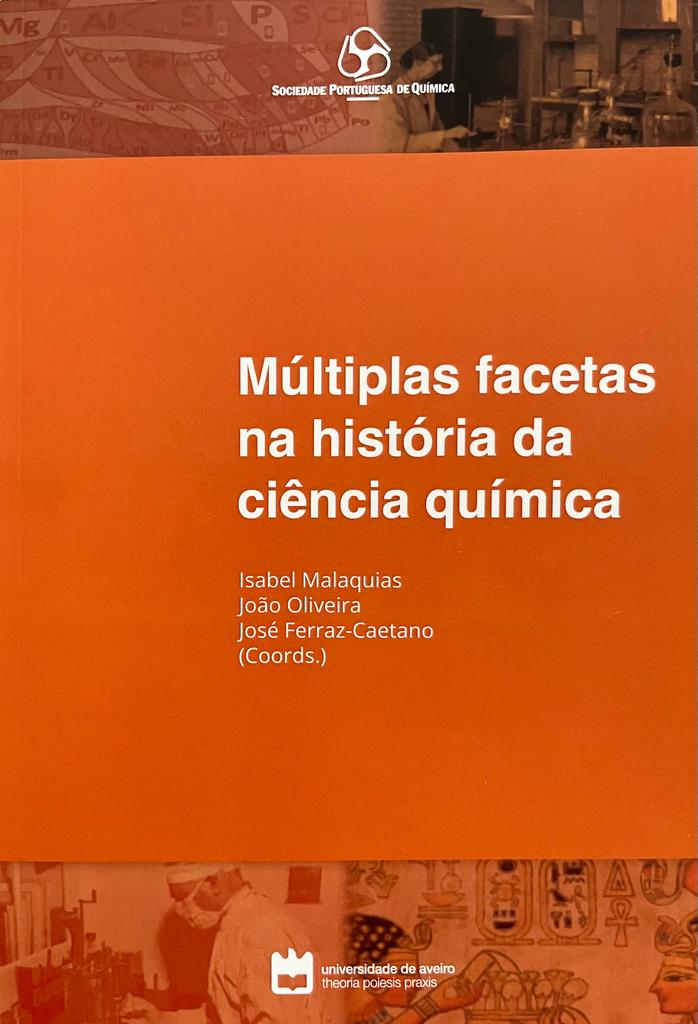 Capítulo en Libro
Chemistry and its transformations
Malaquias I., Oliveira J., Ferraz-Caetano J. (coords)
Mùltiplas facetas na história da ciência química
Universidade de Aveiro
2023
ISBN 978-972-789-881-7
Capítulo en Libro
Chemistry and its transformations
Malaquias I., Oliveira J., Ferraz-Caetano J. (coords)
Mùltiplas facetas na história da ciência química
Universidade de Aveiro
2023
ISBN 978-972-789-881-7
-
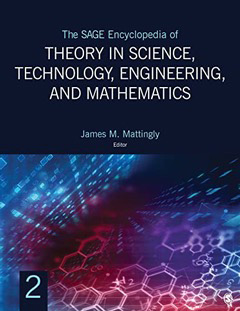 Capítulo en Libro
Chemistry
James Mattingly (ed)
The SAGE Encyclopedia of Theory in Science, Technology, Engineering, and Mathematics
Thousand Oaks
2023
ISBN 978-1483347721
Capítulo en Libro
Chemistry
James Mattingly (ed)
The SAGE Encyclopedia of Theory in Science, Technology, Engineering, and Mathematics
Thousand Oaks
2023
ISBN 978-1483347721
- Artículo Las prácticas químicas a través de sus transformaciones CRÍTICA, Revista Hispanoamericana de Filosofía 2022 Vol. 54, No. 162, 57-82
- Capítulo en Libro Las entidades ocultas de la Química en J.R. Orrantía y R.J. Bernal (coords) Los trota-Islas. Dialogos interdisciplinares entre Ciencia y Filosofía FQ-UNAM 2021 México
-
Artículo
El limite material de la sustancia química
Dianoia
2021
66, 51-78
Abstract
Chemistry, as we know it today, is a system of scientific, experimental practices, stabilized and taught in the same way in most countries. It is the inheritor of several trades whose objective is to transform and create new substances. I discuss here the material limit of the chemical substance, exemplified by carbon, and particularly by the C60 diffraction experiment. I thus intend to clarify the concept of chemical substance and its relevance in the current philosophical discussion.Keywords
System of scientific practices, C60 diffraction experiment, Philosophy of chemistry, Technoscience -
Artículo
La no neutralidad de la química vista desde la historia
Eduación Química
2020
31(4), 156-166
Abstract
In this book, the development of chemical practices, both academic and industrial, is traversed throughout much of the 20th century. Going through the brutal irruption in the Spanish public life of F. Franco, leader of the coup d’etat against the Spanish Republic that gave rise to the Civil War (1936-39) and later to an iron military dictatorship of almost forty years long. In this period, Spanish chemists, in Spain and in Latin America, maintained their practices from a political position, sometimes clear, others covert. On both sides of the Atlantic, the presence of chemistry professionals was fundamental and exemplifies what the author calls the moral ambiguity of chemistry.Keywords
Chemical practices, Spain, Latin America, Civil War, Moral ambiguity. - Capítulo en Libro Prefacio en Filosofia da Química no Brasil Fi 2019 Porto Alegre
-
Artículo
A Tale of Seven Scientists and a New Philosophy of Science
Educación Química
2018
Vol. 29, Núm. 1, Págs. 121-125, Marzo 2018 DOI: 10.22201/fq.18708404e.2018.1.63566
Abstract
In this ambitious book, Eric Scerri, based on the work of several researchers linked to the development of the periodic table, tries to build a new philosophy of science. Most of these characters, identified by himself as “intermediaries”, are from our present unknown and their contributions, some correct and others not. Through seven chapters, which represent approximately three quarters of the total content, Scerri relates the life, problems and contributions of seven “scientists”, mostly chemists but also economists and engineers. [...]Keywords
History of the Periodic Table, Evolutionary Science, Revolutionary Science -
Artículo
About continuity and rupture in the history of chemistry: the fourth chemical revolution (1945–1966)
Found Chem
2017
DOI 10.1007/s10698-018- 9308-9
Abstract
A layered interpretation of the history of chemistry is discussed through chemical revolutions. A chemical revolution (or rupture, discontinuity, transition) mainly by emplacement, instead of replacement, procedures were identifed by: a radical reintepretation of existing thought recognized by contemporaries themselves, which means the appearance of new concepts and the arrival of new theories; the use of new instruments changed the way in which its practitioners looked and worked in the world and through exemplars, new entities were discovered or incorporated; the opening of new subdisciplines, which produced, separated scientifc communities. The fourth chemical revolution, fundamentally characterized by the incorporation of new instruments in chemical practices is discussed.Keywords
Chemical Revolution, Emplacement Revolution, Layered History, Exemplars, Instruments, Chemical Entities -
Artículo
The fifth Chemical Revolution: 1973-1999
Foundations of Chemistry
2017
19, 157-179
Abstract
A new chronology is introduced to address the history of chemistry, with educational purposes, particularly for the end of the twentieth century and here identified as the fifth chemical revolution. Each revolution are considered in terms of the Kuhnian notion of ‘exemplar,’ rather than ‘paradigm.’ This approach enables the incorporation of instruments, as well as concepts and the rise of new subdisciplines into the revolutionary process and provides a more adequate representation of such periods of development and consolidation. [...]Keywords
History Of Chemistry, Chemical Revolutions, Chemistry Education, Exemplars, Instruments and Subdisciplines -
Artículo
The scientific Impact of Mexican Steroid Research (1935-1965). A Bibliometric and Historiographic Analysis
Journal of the Association for Information Science and Technology
2016
67, 1245-1256
Abstract
We studied steroid research from 1935 to 1965 that led to the discovery of the contraceptive pill and cortisone. Bibliometric and patent file searches indicate that the Syntex industrial laboratory located in Mexico and the Universidad Nacional Autónoma de México (UNAM) produced about 54% of the relevant papers published in mainstream journals, which in turn generated over 80% of the citations and in the case of Syntex, all industrial patents in the field between 1950 and 1965. This course of events, which was unprecedented at that time in a developing country, was interrupted when Syntex moved its research division to the US, leaving Mexico with a small but productive research group in the chemistry of natural products.Keywords
Steroids, Contraceptive Pill, Syntex - Capítulo en Libro La estrategia educativa en Garritz A., Mateos J.L Historia de la Facultad de Química de la Universidad Nacional Autónoma de México. Su Primer Siglo: 1916-2016 Facultad de Química UNAM 2016 México ISBN 978-607-02-273827
- Capítulo en Libro El camino de la química de Gaston Bachelard en Stip Martínez A. (ed) IMAGINACIÓN, SUBJETIVIDAD, SABER: La filosofía de Gaston Bachelard 2016 Bogotá ISBN 978-958-46-9323-5
-
Artículo
The Role of Instruments in Three Chemical’ Revolutions
Sci & Educ
2014
23:955–982
Abstract
This paper attempts to show one of the ways history of chemistry can be teachable for chemistry teachers, it means something more than an undifferentiated mass of names and dates, establishing a temporal framework based on chemical entities that all students use. Represents a difficult equilibrium between over-simplification versus overelaboration. Hence, following the initial proposal of Jensen (J Chem Educ 75:679–687, 817–828, 961–969, 1998), reconstructs the history of one of chemistry’ dimensions (composition-structure) in terms of three revolutionary moments. [...]Keywords
Chemical Revolutions - Capítulo en Libro Novohispanos y mexicanos en las revoluciones químicas en Ramos M.P., León F. (coords) Aportes Recientes a la Historia de la Química en México CIICH-IQ-UNAM 2014 México ISBN 978-607-02-5696-7
-
Artículo
Exiled Chemist of the Spanish Civil War’s Footprint in Mexico
History Research
2013
3, 406-422
Abstract
The focus of this article will be centered on five Spanish chemists who were refugees in Mexico after the Civil War and provided a strong drive in developing Mexican chemistry. Their names are: Antonio Madinaveitia Tabuyo, José Giral Pereira, Modesto Bargalló Ardévol, Francisco Giral González, and José Ignacio Bolívar Goyanes. This article starts with the panorama of science in Europe (mainly Spain) and in Mexico from the end of the 19th Century to the beginning of the 20th century. [...]Keywords
Spanish Science, Exiled Chemists, Mexico’s Chemistry Improvement -
Artículo
Technochemistry: One of the chemists’ ways of knowing
Found Chem
2013
15:157–170
Abstract
In this article, from the characterization of technoscience of the English historian J. Pickstone and the recognition of the importance of models and modelling in research and teaching of chemistry, the term technochemistry is introduced as a way of chemical knowledge. With the above new possibilities for rethinking the chemistry curriculum are opened.Keywords
Technochemistry - Capítulo en Libro About the Chemical Experiment in Llored J.P. (ed) The Philosophy of Chemistry: Practices, Methodologies, and Concepts Cambridge Scholars 2013 Cambridge ISBN 1-4438-4605-8
-
Artículo
A new definition of models and modeling in chemistry’ teaching
Science & Education
2011, published online 31th October
Abstract
The synthesis of new chemical compounds makes it the most productive science. Unfortunately chemistry education practice has not been driven to any great extent by research findings, philosophical positions or advances in new ways of approaching knowledge. The changes that have occurred in textbooks during the past three decades do not show any real recognition of these. Despite previously reported different types of models in this paper, from an ‘empirical reliability with minimal realism’ approach to realism, a new simple and broad definition, a typology of models and their relation with modeling is presented.Keywords
Models, Modeling -
Artículo
La imagen pública de la química
Educación Química
2011
22, 320-331
Abstract
Following the proposals of T. Kuhn and W. Jensen on scientific revolutions, in this article history of chemistry is split up into five great revolutions (1770-1790; 1845-1865; 1904-1924; 1945-1965 and 1973-1993) and the public image of chemistry around them is examined.Keywords
History, Chemistry, Revolutions, Paradigms -
Artículo
Heuristic diagrams as a tool to teach history of science
Science & Education
2011, published online 23th August
Abstract
The graphic organizer called here heuristic diagram as an improvement of Gowin’s Vee heuristic is proposed as a tool to teach history of science. Heuristic diagrams have the purpose of helping students (or teachers, or researchers) to understand their own research considering that asks and problem-solving are central to scientific activity. The left side originally related in Gowin’s Vee with philosophies, theories, models, laws or regularities now agrees with Toulmin’s concepts (language, models as representation techniques and application procedures). [...]Keywords
Heuristic Diagrams, Teaching - Capítulo en Libro La alterativa histórico filosófica al currículo dominante de química propuesta por Stephen Toulmin en Stip A., Sánchez R.E., Gamboa M.C. Química: Historia, Filosofía y Educación Universidad Pedagógica Nacional 2011 Bogotá ISBN 978-958-8650-22-7
- Libro Química mexicana Tercer Milenio, CONACULTA 2011 México 64 páginas ISBN 970-18-8374-8
-
Artículo
La relación técnica-ciencia y su racionalidad. El ejemplo de S. Toulmin
Ludus Vitalis: Revista de filosofía de las ciencias de la vida
2010
XVIII, 155-171
Abstract
This paper analyze the main contributions to technoscience reason made by the philosopher, historian, moralist and rhetorician S. Toulmin, concerning the development of science and technology through ’problem solving.’ A brief discussion on the difficulties of his work and its acceptance by several academic communities is also introducedKeywords
Technology, Science, Argumentation, Reason, Technoscience, Problems, Concepts, Rationality, Reasonableness. - Capítulo en Libro 1867. El inicio de la enseñanza de la química en la Escuela Nacional Preparatoria en Ruiz R., Argueta A., Zamudio G. (coords) Otras armas para la Independencia y la Revolución FCE 2010 México ISBN 978-607-16-0479-8
-
Artículo
Historia Experimental de la Química
Tecné, Episteme y Didaxis: TED No. Extraordinario
2009
4° Congreso Internacional sobre Formación de Profesores de Ciencias
Abstract
A partir de una discusión de la importancia de la experimentación en la enseñanza de las ciencias y el valor que la didáctica le da a la historia y la filosofía, se propone abordar la enseñanza experimental de la historia de la química a partir de la postura historiográfica recurrente empleando diagramas heurísticos. Lo anterior a través de diez experimentos elegidos por su valor didáctico y tecnocientífico.Keywords
Historia, Química, Experimentación, Diagramas Heurísticos, Modelos -
Artículo
Filosofía de la química: I. Sobre el método y los modelos
Educación Química
2009
20, 1, 6-11
Abstract
Considering the difficulties identified by the philosophers of science to the universal and unique scientific method, the method of the chemistry is characterized with the analysis and the synthesis. Through same it is possible to explain the exponential growth of the chemical information in the last years.Keywords
Models, Analysis, Synthesis, Philosophy Of Chemistry, Chemistry Knowledge Growth -
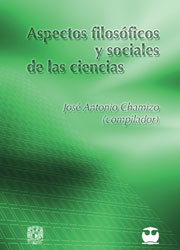 Libro
Aspectos filosóficos y sociales de las ciencias
UNAM
2009
México
104 páginas
ISBN 978-607-02-22355-8
Libro
Aspectos filosóficos y sociales de las ciencias
UNAM
2009
México
104 páginas
ISBN 978-607-02-22355-8
- Artículo Sobre la filosofía de la química Tecné, episteme y didaxis 2008 Número 23
- Capítulo en Libro Memory and History: The Mexican Community of Chemists Tells Its Story in Proceedings from the 6th ICHC 2008 Louvain-la-neuve, Belgium
- Capítulo en Libro La huella en México de los químicos del exilio español de 1939 in Academia Mexicana de Ciencias 2008 México
- Artículo Sobre el reduccionismo en la ciencia o la imposibilidad de reducir la química a la física La Gaceta del FCE 2007 440, 8-10
-
Artículo
Teaching modern chemistry through historical recurrent teaching models
Science & Education,
2007
16(2), 197-216
Abstract
Today there are little more of 3 million chemist all over the world producing about 800,000 papers a year. They produce new substances – from some hundreds in 1800 to about 20 million now – the vast majority artificial. This rate is growing quite fast. Once the majority of chemistry teachers all over the world used textbooks as the main (sometimes the only) source of information, we became, without wanting to... history teachers! If ‘scientific literacy’ is the aim of science lessons in school, it is much more than the literacy now developed in science classrooms. It must include an understanding of the nature and process by which scientific activities are carried out. [...]Keywords
Chemical Information Growth, History Teachers, Recurrent Historical Teaching Model -
Artículo
Las aportaciones de Toulmin a la enseñanza de las ciencias
Enseñanza de las ciencias
2007
25, 133-146
Abstract
Se presentan las principales aportaciones a la enseñanza de las ciencias del fi lósofo, historiador, moralista y retórico S. Toulmin, centradas en la argumentación y el desarrollo de la ciencia a través de problemas. Además se discuten las difi cultades de su aceptación por las diversas comunidades académicas.Keywords
Argumentación, Naturaleza de la Ciencia, Racionalidad, Razonabilidad, Problemas -
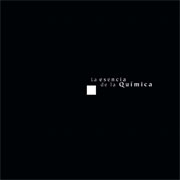 Libro
La Esencia de la Química
UNAM
2007
México
204 páginas
ISBN 978-970-32-4548-2
Libro
La Esencia de la Química
UNAM
2007
México
204 páginas
ISBN 978-970-32-4548-2
- Artículo Actividades químicas en la historia de México Ciencia y Desarrollo 2006 32, 199, 62-67
- Artículo Los modelos de la química Educación Química 2006 17, 476-482
- Capítulo en Libro Química dialéctica. Sobre aprendizaje, modelos y realidad en METL1 Papeles del seminario de Investigación educativa Facultad de Química-UNAM 2006 México ISBN 970-32-3322-9
- Artículo La enseñanza de la historia de la ciencia con modelos recurrentes. El modelo de Lewis-Langmuir-Sidgwick Enseñanza de las ciencias 2005 Número Especial
- Artículo Ciencia en contexto. Una reflexión desde la filosofía Alambique 2005 46, 9-17
- Artículo Hacia una cultura química Ciencia. Revista de la Academia Mexicana de Ciencias 2005 56, 17-26
- Capítulo en Libro We, teachers of chemistry, have become teachers of the history of chemistry… but which type of history must we teach? in Proccedings from the 8th International History and Philosophy of Science Teaching Group Conference University of Leeds 2005 Leeds, UK
- Capítulo en Libro Toulmin’s concepts and problem characterization in chemistry and chemistry teaching in Proccedings from the 8th International History and Philosophy of Science Teaching Group Conference University of Leeds 2005 Leeds, UK
-
Artículo
Apuntes sobre la historia de la Química en América Latina
Revista de la Sociedad Química de México
2004
48, 165-171
Abstract
La historia de lo que América Latina es en la actualidad responde, de alguna manera, a su situación geográfica, su variedad ecológica, y su habilidad para intercambiar productos con otros países. Se consideran tres fases históricas: Prehispánica (hasta el principio del siglo XVI), donde se ponderan los productos. Colonial (siglos XVI-XVIII), donde predominan los procesos. Independiente (principios del XIX hasta nuestros días), donde se establecen las instituciones. Hoy América Latina produce alrededor de 2% de la investigación química.Keywords
History, Chemistry, Societies, Latin America, Universities - Libro Las grandes ideas de la ciencia del siglo XX Tercer Milenio, CONACULTA 2002 México 64 páginas ISBN 970-18-7052-2
- Capítulo en Libro Química mexicana en Ruiz R., Labastida J., Arnaud A. (coords) Enciclopedia de Conocimientos Fundamentales Tercer Milenio, CONACULTA 2002 México 64 páginas ISBN 970-18-8374-8
- Capítulo en Libro The history of chemistry in México. A brief approach to its teaching in Proceedings from the Sixth Conference of the IHPST University of California 2001 Los Angeles, USA
-
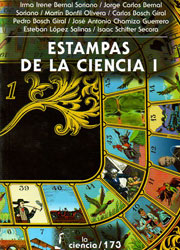 Capítulo en Libro
La nicotina del tabaco, algo de la química del siglo XIX
en
Estampas de la Ciencia I
Fondo de Cultura Económica
1999
México
ISBN 968-16-6087-0
Capítulo en Libro
La nicotina del tabaco, algo de la química del siglo XIX
en
Estampas de la Ciencia I
Fondo de Cultura Económica
1999
México
ISBN 968-16-6087-0
Este capitulo fue premiado por un jurado integrado por representantes de la Academia Mexicana de Ciencias, el Consejo Nacional de Ciencia y Tecnología y el Consejo Consultivo de Ciencias
- Artículo Linus Pauling. El químico más importante de este siglo Educación Química 1995 6, 64-70
- Libro El científico de sonrisa contagiosa, Linus Pauling Pangea, CNCA 1994 México 101 páginas ISBN 968-6177-62-0
- Artículo Modelos de enlace químico Elementos 1992 2, 28-32
- La herencia de Lavoisier Contactos 1992 5, 23-25
- El mundo de John Dalton Educación Química 1992 3, 42-45
- Libro El maestro de lo infinitamente pequeño. John Dalton Pangea, CNCA 1992 México 99 páginas ISBN 968-6177-46-9
- Artículo Jons Jacob Berzelius. El químico del siglo XIX Revista de la Sociedad Venezolana de Química 1989 12, 21-25
- Emplear la historia para enseñar química. I. Langmuir Contactos 1988 3, 54-57
- La química en el siglo XIX. Segunda parte Ciencia y Desarrollo 1987 77, 57-62
- La química en la siglo XIX. Primera parte Ciencia y Desarrollo 1987 76, 19-23